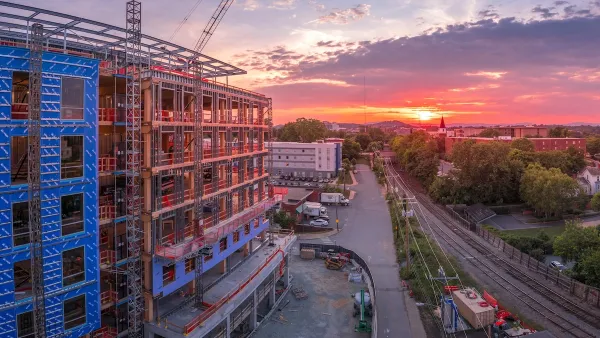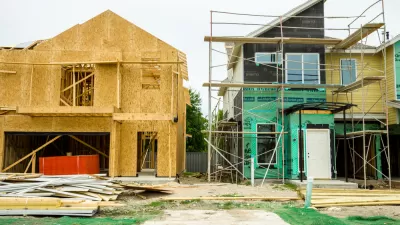Anita Laremont, newly appointed director of the New York Department of City Planning and chair of the City Planning Commission, elaborates on the city's priorities for the public realm and the role for good urban design to enhance quality of life.

Twenty months into the COVID-19 pandemic and with less than three months left in the term of outgoing Mayor Bill De Blasio, New York City is updating its "Urban Design Principles," which guide local decision making on neighborhood zoning and development. The Planning Report spoke to Anita Laremont, newly appointed director of the New York Department of City Planning and chair of the City Planning Commission, on the city’s priorities for the public realm and the role for good urban design moving ahead. Laremont also describes her charge to further address the city's affordability problems across all five boroughs.
“We believe our priorities will continue to be the new mayor's priorities in dealing with the challenging issue of not having enough affordable housing for all of our citizens.”
Laremont specifically also speaks to the inequalities in public space that exists in New York that have been exacerbated by the pandemic.
"COVID-19 also showed us the divide that we have in the city. There are BIPOC communities and communities with lower incomes that have very poor-quality public realms that we need to focus on more closely. People who live in the South Bronx need to have the same kind of opportunities to be outdoors and in quality settings in ways that they didn't before."
Read more about how New York plans to adapt and grow given the pressures of the Covid-19 pandemic, a changing economy, and a housing crisis below.
FULL STORY: NYC Planning’s Anita Laremont on the City's Principles of Good Urban Design

Maui's Vacation Rental Debate Turns Ugly
Verbal attacks, misinformation campaigns and fistfights plague a high-stakes debate to convert thousands of vacation rentals into long-term housing.

Planetizen Federal Action Tracker
A weekly monitor of how Trump’s orders and actions are impacting planners and planning in America.

San Francisco Suspends Traffic Calming Amidst Record Deaths
Citing “a challenging fiscal landscape,” the city will cease the program on the heels of 42 traffic deaths, including 24 pedestrians.

Defunct Pittsburgh Power Plant to Become Residential Tower
A decommissioned steam heat plant will be redeveloped into almost 100 affordable housing units.

Trump Prompts Restructuring of Transportation Research Board in “Unprecedented Overreach”
The TRB has eliminated more than half of its committees including those focused on climate, equity, and cities.

Amtrak Rolls Out New Orleans to Alabama “Mardi Gras” Train
The new service will operate morning and evening departures between Mobile and New Orleans.
Urban Design for Planners 1: Software Tools
This six-course series explores essential urban design concepts using open source software and equips planners with the tools they need to participate fully in the urban design process.
Planning for Universal Design
Learn the tools for implementing Universal Design in planning regulations.
Heyer Gruel & Associates PA
JM Goldson LLC
Custer County Colorado
City of Camden Redevelopment Agency
City of Astoria
Transportation Research & Education Center (TREC) at Portland State University
Jefferson Parish Government
Camden Redevelopment Agency
City of Claremont





























